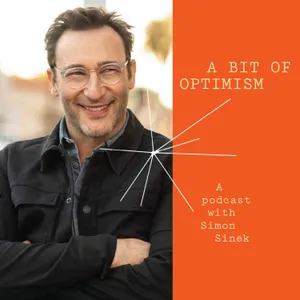Podcast Summary
Resilience is a skill, not a fixed trait: Resilience is a continuous process, not a one-time achievement, and it's essential to recognize and validate emotional experiences rather than reducing them to a label of strength
Resilience is not a fixed trait, but rather a skill that needs to be constantly developed through facing and adapting to adversity. Lourdes Dolores Follins, a psychotherapist and licensed clinical social worker, explains that resilience is not something we possess, but something we work on. It's not a one-time achievement, but a continuous process. However, it's important to note that the concept of resilience has a complex history, with its association with strength being rooted in a problematic past. Lourdes emphasizes that this notion of strength being tied to psychological and emotional fortitude is a relatively modern concept. Historically, strength was associated with physical capacity. The use of the term "resilient" to describe people going through difficult experiences, such as illnesses or traumas, can be reductive and perpetuate harmful stereotypes. Instead, it's essential to recognize and validate the emotional experiences of individuals and allow them to be vulnerable without shame.
Challenging societal expectations of resilience: Recognize the importance of vulnerability and advocating for systemic change to promote emotional growth
Our current societal expectations of constant resilience and strength can be detrimental to our mental and emotional wellbeing. Instead of focusing on individual change, we should challenge the systems that prevent us from being fully human and expressing our emotions. Neoliberalism and internalized capitalism contribute to this issue by promoting the idea that we must be strong and independent at all times. However, this mindset can lead to exhaustion and a lack of community support. To reframe our relationship with resilience, we need to recognize the importance of allowing ourselves and others to be vulnerable and to advocate for changes in the systems that hinder our emotional growth.
The impact of communities on resilience: Building strong, supportive communities and recognizing the value of resilience in all individuals can help promote true equality and shared responsibility, breaking the cycle of marginalization and overburdening of certain communities.
Resilience, the ability to bounce back from adversity, is greatly influenced by our communities and the connections we build within them. Resilience is not a fixed trait, but rather something that can be strengthened through deep conversations and emotional support. However, certain communities or individuals may be targeted due to their resilience capacity, often being invited to take on the most challenging situations. It's important to remember that those in positions of power may not intentionally seek out the most resilient individuals, but rather those who they believe are less likely to save the day or be heroes. This can lead to a cycle of marginalization and overburdening of certain communities. Building strong, supportive communities and recognizing the value of resilience in all individuals can help break this cycle and promote true equality and shared responsibility.
Cultivating Resilience: Building Self-Esteem, Social Support, and Problem-Solving Skills: Focusing on self-preservation, acknowledging limitations, building self-esteem, increasing social support, practicing self-compassion, and improving problem-solving skills can help individuals develop resilience, leading to better overall well-being.
While it can be disheartening to observe people who seem to lack motivation or struggle with basic tasks, it's important to remember that resilience – the ability to bounce back from adversity – is a valuable trait. Those who prioritize self-preservation and acknowledge their limitations are demonstrating resilience. In therapy, focusing on building self-esteem, increasing social support, practicing self-compassion, and improving problem-solving skills can help individuals develop resilience. Emotional management is also crucial, as learning to respond effectively to stressors can lead to better overall well-being. Ultimately, recognizing the importance of resilience and taking steps to cultivate it can lead to a more positive outlook on life, even in challenging circumstances.
Reframing resilience beyond emotional management: Focus on addressing root causes of adversity and creating a supportive society to reduce the need for individual resilience.
Resilience is not just about managing emotions in socially acceptable ways, but also seeking support and inspiration from various sources, whether it's spiritual practices, texts, or art. However, instead of praising someone's resilience as a compliment, we should focus on addressing and eliminating the root causes of hardships and adversities that require resilience in the first place. By reframing our perspective and taking action towards creating a more equitable and supportive society, we can make a significant impact and reduce the need for individuals to rely solely on their own resilience.
Resilience vs. Resistance: Embrace emotions for healthier resistance and growth, rather than enduring constant hardship as a sign of resilience.
Resilience is not something to be proud of if it comes at the cost of constant hardship. Instead, acknowledging and embracing emotions like anger, frustration, and sadness can lead to healthier resistance and growth. The speaker suggests that resilience can sometimes be a sign of enduring unhealthy situations, while resistance, rooted in emotions and collaboration with others, can lead to positive change. In these trying times, the speaker personally finds solace in spiritual practices, movement, and connecting with elders to navigate challenges and stay grounded in their humanity.
Prioritizing humanity for personal growth and resilience: Recognize agency, seek spiritual and therapeutic sources, dismantle distractions, and challenge limiting systems for personal growth and resilience.
Prioritizing our humanity amidst the demands of work and society is essential for personal growth and resilience. Lourdes and the speakers in this episode emphasized the importance of recognizing our agency and seeking spiritual, therapeutic, and everyday sources of nourishment. It's crucial to be mindful of distractions like social media and find ways to dismantle systems that hinder our humanity. As listeners, we're encouraged to reflect on how we can reframe resilience for ourselves and our communities, and consider small actions to challenge limiting systems. Annie from Philly shared a practical tip of deleting social media apps during the day to increase presence and mindfulness. This episode of LIFE KIT, produced by NPR, also featured a random tip from listener Hi, Annie from Philly, and was sponsored by Charles Schwab's Choiceology podcast.






